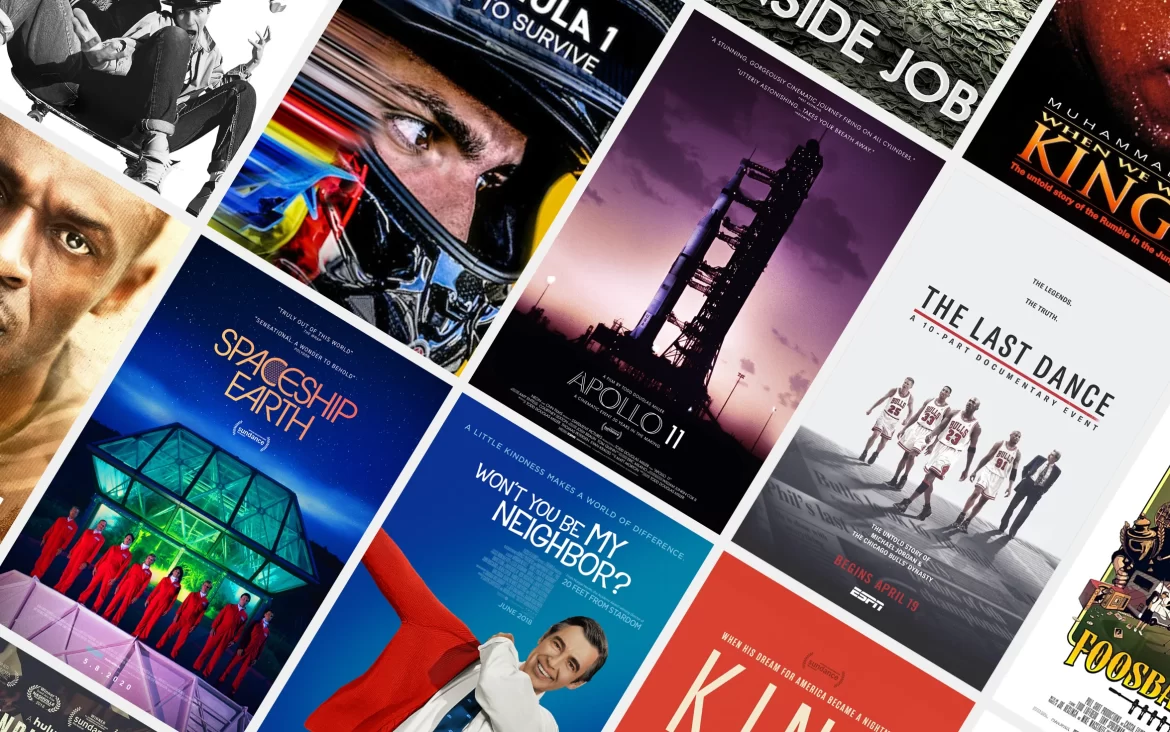Whether you’re looking to watch documentaries games or you simply want to learn about a topic, there are several sources to help you. From online sites to TV stations, there are a number of ways to watch documentaries. These days, a lot of documentaries are available on DVD and digital video, so you don’t have to have cable or satellite television to view them.
Top Documentary Films
The best documentary films are the ones that not only entertain but also teach. They are based on true stories and offer viewers a glimpse into the world around them.
You can find free documentaries from all over the world on a variety of sites. Streaming services like Netflix, Hulu, and Amazon Freevee are great sources of quality documentaries.
One of the best ways to find free documentaries is to check out the top notch film channel on YouTube. There are over 700 videos there, including some of the best documentaries.
The Documentary Tube is another place to look for great documentaries. It offers a number of interesting features, such as the Our Favorites section. Users can browse through the various titles they’ve already watched or add new ones to their playlists.
PBS Frontline
The PBS Frontline documentary series is known for covering a variety of sociopolitical issues. The program has been broadcast on PBS for over 37 years.
In recent years, the team behind the program has produced several documentaries. These documentaries address a wide range of topics, including the rise of conspiracy theories and the dangers of social media giants.
One of the latest Frontline documentaries, “America After 9/11,” examines the United States’ foreign policy failures over the last two decades. It also explores the War on Terror’s impact on the home front.
Another PBS Frontline documentary, “The Facebook Dilemma,” is a two-part series that investigates the social media giant’s influence on elections. In addition to examining how the platform’s power can be used to spread disinformation, it also takes a look at how the platform’s social structure may affect democratic institutions.
GuideDoc
GuideDoc is a curated online service that streams award winning documentaries from all over the world. The company is known for introducing new content daily. They also offer a curated collection of film festival winners.
GuideDoc is a bit of a multi-tasker – it’s available on Android and iOS devices, as well as Chromecast and Apple TV. A GuideDoc subscription is $7.99 per month and you get to choose from an unlimited number of films and documentaries from around the globe. One of the coolest features is that you can watch your favorite documentaries on the fly. This allows for a unique and individualized experience.
Not only does GuideDoc provide you with a good time, it provides the most interesting documentary movies that are out there. They have over a thousand documentaries in their library, and they are always on the lookout for the next big thing.
YouTube
YouTube has a collection of documentaries that are sure to please. Some of the best include the 13th and The September Issue. These films provide a window into our nation’s history. They also offer an insightful look at how slavery never ended after the Civil War.
While there are more than a few free movie apps to choose from, YouTube’s library of movies and shows is no less rich. Among the dozens of titles available are films in high definition and in standard resolution. You can even download some of these movies for offline viewing.
To get started, you’ll need to create a YouTube account. This will enable you to rent or buy movies. Once you have registered, you can search for your favorite films and TV shows. For instance, if you enjoy documentaries, you can explore YouTube’s selection of awe-inspiring nature documentaries.
Books and resources about documentaries
One of the most significant ways to engage with history is through documentary media. Documentary cinema is a dynamic crossroads of aesthetic and political issues. It opens up new experiences of history in times of contemporary crises.
This collection of essays explores the documentary arts and the diverse ways in which they are made. The contributors consider films originating from a variety of countries and contexts. They also examine the work of well-established auteurs as well as less canonical filmmakers. Their contributions highlight questions raised by emerging narrative forms and participatory practices.
This book examines the social and cultural changes facilitated by documentary filmmaking. It offers a critical study of how filmmakers respond to uncertainty and loss, and how they move from a position of solidarities to a position of participative action.

